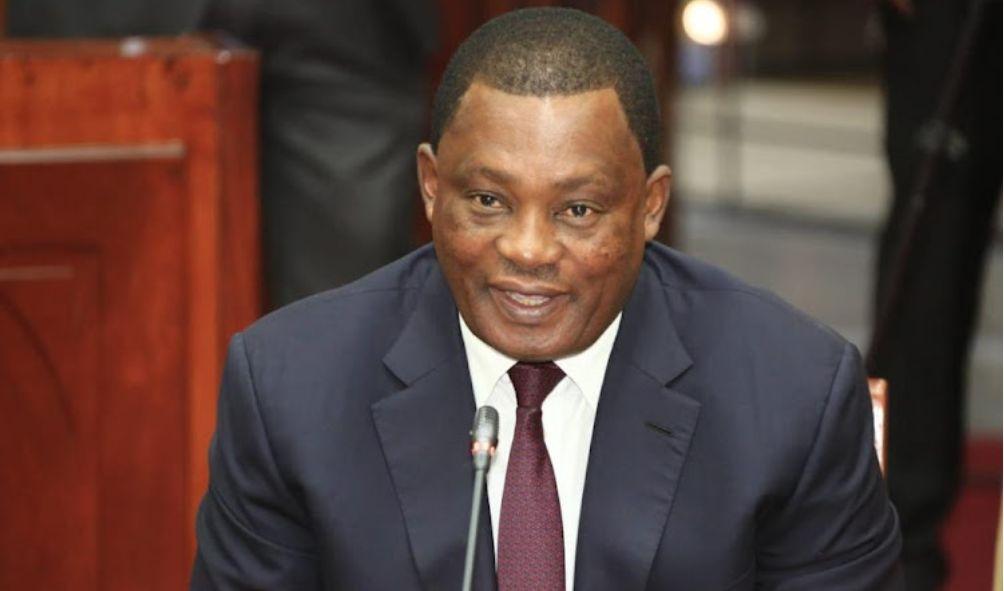Housing Levy: AG Tells KRA to Stop Collecting Housing Tax
The Attorney-General, Justin Muturi, has warned the Kenya Revenue Authority (KRA) not to proceed with the collection of the affordable housing levy, as it was deemed unlawful by the Court of Appeal on January 26, 2024.
The Commissioner-General of the Kenya Revenue Authority, Humphrey Wattanga, wrote a letter on February 12, 2024, seeking advice from the Attorney General regarding the government’s stance on the disputed levy.
Mr. Muturi informed the Kenya Revenue Authority (KRA) that, according to the Court decision at that time, the levy lacked legal justification. Therefore, he emphasized that the tax authority should refrain from collecting the tax.
“The upshot of this is that there is no legal basis on which the housing levy as provided in section 84 of the Finance Act can be implemented,” the AG said in a February 21,2024 letter to Mr Wattanga.
“Therefore, our considered opinion is that as of the date of delivery of the ruling of the Court of Appeal i.e on January 26, 2024, there is no legal provision that enables the collection and administration of the housing levy,” he added in the letter copied to Treasury Chris Kiptoo and his Housing and Urban Development counterpart Charles Hinga and Solicitor-General Shadrack Mose.
In the six months leading up to December, a total of Sh26.8 billion was disbursed by both employers and employees as part of the compulsory housing development levy. This occurred amidst legal challenges that pose a potential threat to the contentious contribution.
Revelations from the Parliamentary Budget Office (PBO), responsible for advising legislators on economic and budgetary matters, indicate that the State Department for Housing and Urban Development has already gathered the sum intended to be achieved by the State by the conclusion of the Financial Year ending June 2024, surpassing the target of Sh63.2 billion.
ALSO READ:
- “Two Groups, One Agenda”: Gachagua Accuses Raila of Secret Political Deals
- Exclusive: Ida Odinga’s 75th Birthday Party in Karen (Photos)
- FKF President Discloses Exact Amount Paid to Harambee Stars Players
- Gachagua’s Ally Senator John Methu Admits Ruto Might Win 2027 Elections
- Maraga Explains Why He Hasn’t Campaigned in Kisii Despite 2027 Bid
The government is currently collecting an average of Sh4.47 billion per month, totaling Sh26.8 billion, which is approximately 85 percent of the budgeted Sh5.26 billion. This amount comes from the compulsory levy, which has been temporarily suspended by the courts.
Both employers and workers were contributing 1.5% of their gross salary towards the Housing Levy, with the government intending to utilize the funds for the advancement of affordable housing and related social and physical infrastructure.
In November of last year, the High Court ruled that the levy was unconstitutional. However, it granted permission for the government to keep collecting it until January 10 to provide the State with an opportunity to appeal.
On January 26, the Court of Appeal issued a halt to the State’s ongoing collections, and Parliament has declared its plan to challenge the decision at the Supreme Court of Kenya.
In the evaluation of the Affordable Housing Bill 2023 for financial and economic considerations, the PBO acknowledges various significant shortcomings. It emphasizes the existence of crucial gaps in the bill and cautions that the government may face legal vulnerabilities due to the numerous pre-existing contracts it has entered into.
“If the current status is not addressed and the levy remains nullified, the government will be exposed to fiduciary risks due to the contractual obligations it has already entered with property developers for the ongoing projects since its exchequer funding is constrained,” says PBO.
Housing Levy: AG Tells KRA to Stop Collecting Housing Tax
